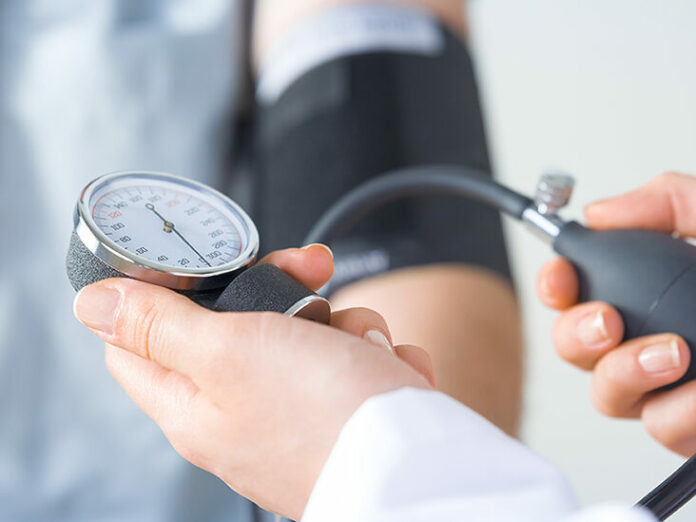This post will explain alternatives to beta blockers. Beta-blockers are a kind of medication used in the treatment of heart disease and high blood pressure (hypertension). Nevertheless, your medical team might beware about recommending beta-blockers for you if you have a respiratory condition such as asthma or persistent obstructive lung disease (COPD) because of an increased danger of experiencing hazardous negative effects, such as shortness of breath or a worsening of other breathing symptoms.
Safety of Beta Blockers in Respiratory Disease
In this article, you can know about alternatives to beta blockers here are the details below;
What’s challenging about this is that it is common to have both heart problem and lung (lung) disease– and beta-blockers are typically advantageous even when you have both conditions. In some instances, your doctor might suggest a beta-blocker and ask you to watch out for and report any side effects that you experience. In others, more recent drug options might be better. Also check nightstand charging station.
What Beta-Blockers Do.
Beta-blockers, likewise referred to as beta-adrenergic receptor blockers, decrease heart rate and high blood pressure. This is helpful if you have high blood pressure and/or heart failure. Beta-blockers are typically utilized to reduce the danger of a cardiac arrest in people who have cardiovascular disease. They are likewise used to treat certain arrhythmias, and, in some circumstances, for preventing migraines.
These prescription drugs obstruct the effects of epinephrine, the hormone responsible for increasing heart rate and raising blood pressure. By binding to particles on the surface of the heart and blood vessels– referred to as beta-1 receptors– beta-blockers decrease the results of epinephrine. As a result, the heart rate is slowed, the force of heart contractions is minimized, and blood pressure is decreased.
Use With Respiratory Disease.
Beta-blockers can be beneficial to those with lung illness for a number of factors:
– They can help maintain optimum high blood pressure and heart function, assisting you avoid dyspnea (shortness of breath).
– COPD is associated with an increased threat of cardiac arrest, which beta-blockers can assist deal with.
– Heart illness is a leading cause of death amongst individuals who have lung illness, and these drugs can minimize that risk.
These benefits, nevertheless, need to be accurately weighed versus noteworthy dangers.
Lung Side Effects.
The issue with utilizing beta-blockers if you have lung illness is that beta receptors are likewise discovered in lung tissue. When epinephrine binds to beta receptors in the lungs, the airways relax (open). That is why you might use an EpiPen to deal with a respiratory emergency.
Beta-blockers trigger the respiratory tracts in the lungs to contract (narrow), making it challenging to breathe. This isn’t usually an issue unless you already have clog or constricting in your air passages from lung illness.
Respiratory side effects of beta-blockers can include:.
– Shortness of breath.
– Rapid breathing.
– Shallow breathing.
– Wheezing.
– Anxiety.
– Asthma worsening.
If you encounter any of these obstacles, it is imperative that you discuss your signs with your doctor. In some cases, a dose reduction can alleviate the medication adverse effects. Get instant medical attention if you experience extreme symptoms. Also check wet vacuum cleaner for car
Cardioselective Beta-Blockers.
Beta-blockers can impact beta-1 and beta-2 receptors. In general, beta-1 receptors are more common in the heart, while beta-2 receptors are more prevalent in the lungs.
Newer, second-generation beta-blockers are considered cardioselective, as they have a higher affinity for beta-1 receptors. 2nd generation beta-blockers consist of:.
– Brevibloc (esmolol).
– Tenorman (atenolol).
– Toprol XL (metoprolol succinate).
– Zebeta (bisoprolol fumarate).
– Bystolic (nebivolol).
Normally speaking, cardioselective beta-blockers are thought about safer if you have a pulmonary disease, such as asthma or COPD.
First-generation beta-blockers are non-selective– they obstruct both beta-1 and beta-2 receptors. These include:.
– Inderal (propranolol).
– Trandate (labetalol).
– Corgard (nadolol).
– Coreg (carvedilol).
Risks.
Be aware that while selective beta-blockers are not as most likely to trigger lung negative effects as non-selective beta-blockers, they can cause pulmonary adverse effects, especially at high dosages. When taking these drugs, you might experience shortness of breath, wheezing, asthma or COPD worsening, or more subtle respiratory results that can be determined with diagnostic tests.5.
Cardioselective beta-blockers might lower forced expiratory volume (FEV1). This is more common when you initially start taking them. FEV1 is a step of the volume of air that you can expire with optimum effort in one second. For the most part, the FEV1 will normalize within a week or 2 as soon as your body adapts to the drug. Also check pill box.
Conclusion:.
While cardioselective beta-blockers are available, your medical group will work with you to customize your treatment to your particular needs– and you may require a prescription for a non-cardioselective beta-blocker. Bear in mind that people respond in a different way to various drugs, so it is important that you watch for any new respiratory signs, such as changes in your breathing pattern or any boosts in the severity or frequency of your worsenings.

